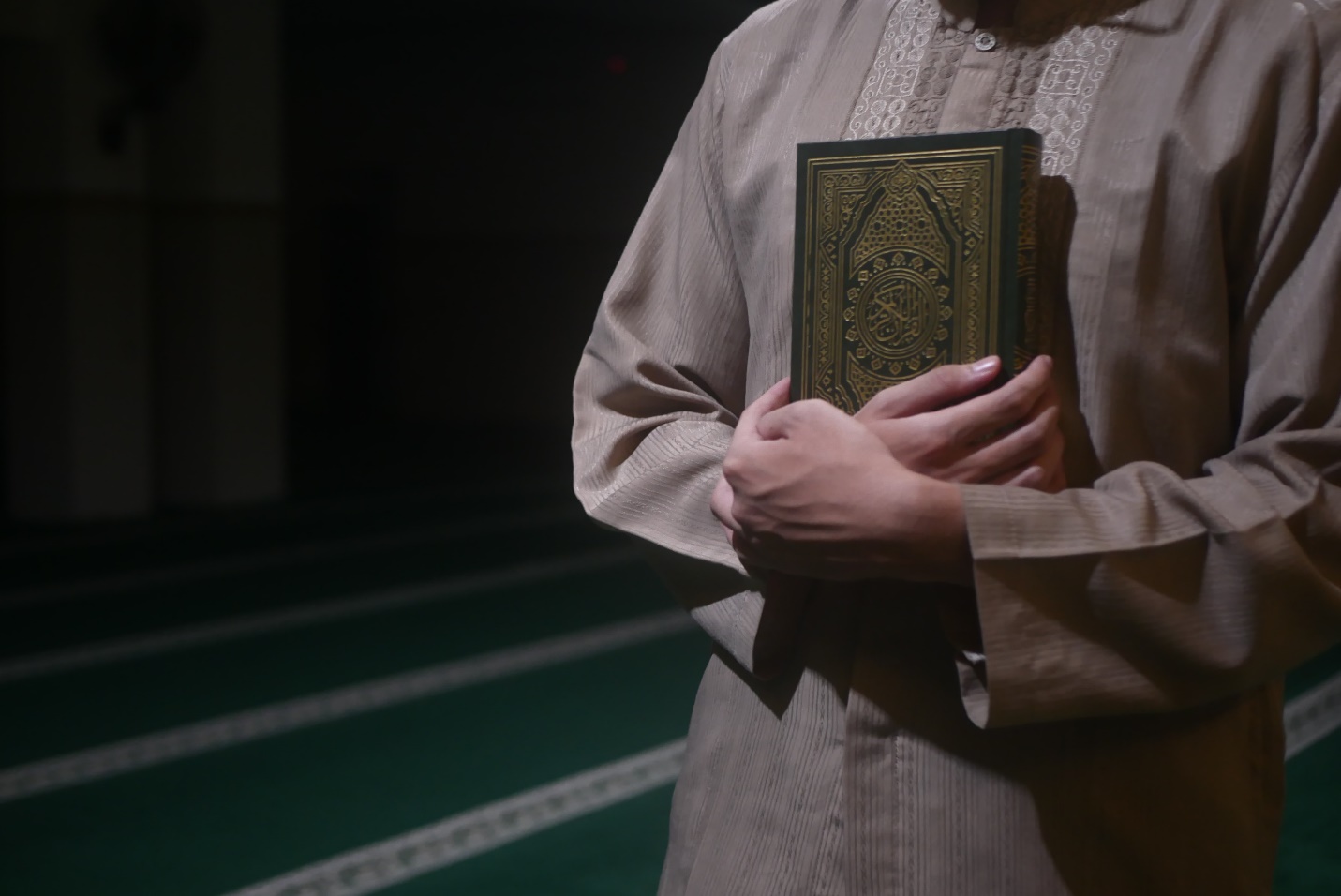The overwhelming majority of committed Muslims – the mukhliseen-i-deen – view “Islamic revolution” as an alien concept. There are good reasons for this but sustaining the revolutionary process, we believe, is necessary for iqamat-e-deen in the contemporary world. In this essay we will try to explain to you why it is necessary that you, as a committed Muslim, support the Islamic revolutionary struggle.
What is Revolution
The basic reason for the unfamiliarity of the concept of revolution in the Muslim lifeworld is the absence of this phenomenon in the twelve hundred years of the Islamic caliphate (from the time of the Prophet صلی اللہ علیہ وسلم to the collapse of the Usmani and Safawi rule).
During this extended historical period society functioned within the ambit of the Shariah, and social and state policy were legitimated on the basis of the Islamic knowledge’s (fiqh, usul and kalam). The state guaranteed the systemic dominance of the Shariah and the Islamic knowledge.
As Imam Ibn Khaldun رحمہ اللہ shows struggle against individual rulers and dynasties was aimed at reducing minor deviations from this governance paradigm – not for reconstituting the state.
Revolution is a process for reconstituting the state. It is a constituent of modernity. During the 18th century the feudal/ Christian state was reconstituted in Britain and France (and established in America by the slaughter of 80 million Red Indians) through revolutionary struggle. Secular, nationalist, liberal states were established through a revolutionary process. This process was political but it built upon the processes of secularization of individuality and society that had been gaining ground in Europe from the 13th century onwards.
Successful revolutions always depend upon prior and ongoing transformation in individual consciousness and social norms and practices.
What is Islamic Revolution
Islamic states were reconstituted by colonialism during the 19th century through occupation and indoctrination (especially through the exercise of educational soft power). In the 20th century when Muslim majority states became independent political power was transferred to the disciples of the colonialists. Virtually all Muslim majority states became nationalist, liberal or socialist republics.
A republic is a state ruled by the law of capital under a constitution which sanctifies human rights and either abolishes Shariah rules (Pakistan, Nigeria, Turkey) or restricts their application to the personal domain (Saudi Arabia, Brunei, Kuwait). It also de-legitimizes Islamic knowledges as a referent of state and social policy.
Islamic revolution is the process of reconstituting the state. It is anti-modern. It delegitimates the rule of law of capital and the constitutional primacy of human rights. It seeks the re-establishment of Shariah and the Islamic knowledges (fiqh, usul and kalam) as the sole source of state policy.
The Islamic revolutionary process is anti-modern also in the sense that it rejects all compromises with capitalist ideologies and forms of governance – liberal, nationalist, secularist, social democratic. It seeks to create a jihadi – not a welfare – state.
The classic statement legitimating the Islamic revolutionary process is to be found in Imam Khomeini’s رحمہ اللہ seminal treatise ولایت فقیہ. The faqeeh is the والی of the Ummat- the وارث of Prophets. The faqih was the guardian of the observance of the Shariah and the supremacy of the Islamic knowledges for over 12 hundred years in all Islamic states.
Our Imam argues that it is the faqih’s primary responsibility to deconstruct the secular neo-colonial state and re-establish the systemic rule of the Shariah and the Islamic knowledges.
This Islamic revolution is a political project for deconstructing the post-colonial state. It is part of the process of اقامت دین not the whole of it. It is specific to the era of the rule of capital and the prevalence of the neo-colonial state.
It is an ijtihad appropriate for the overthrow of Modernist/ Capitalist rule. If and when Modernity/ capitalism is overthrown and Islamic rule is consolidated Islamic revolutionary struggle will no longer be necessary.
Islamic revolutionary struggle has led to the creation of two Islamic states – Iran and Afghanistan. Islamic revolutionary struggle continues in them however because they are under imperialist attack seeking to undermine their social legitimacy at the community level.
They are exceptional Islamic states surrounded by a global dar-al-harb which seeks to re-integrate them (as it has successfully re-integrated the Islamic states established in Chechnya, Egypt, Sudan and Mali) within the global capitalist system.
As long as imperialist rule is not conclusively defeated Islamic revolutionary struggle will (inevitably) continue in Iran and Afghanistan.
Support of the Mukhliseen is Necessary
اے بھائی اگر تم ساتھ نہ دو
تو ہم سے اکیلے کیا ہو گا
The Islamic revolutionary struggle is part of the process of اقامت دین. It is not the whole of it by any means. It depends crucially upon the support of the mukhliseen-e-deen individuals and groups who are endeavouring and organizing to promote Islamic individuality, communal life, customs and traditions at the mass level through their propogational (دعوتی), educational, economic, philanthropic and social support activities.
The success of the Islamic revolutionary struggle in Iran and Afghanistan has depended crucially on the rearguard backing and support of mukhliseen-e-deen. The defeat of Chechnya, Sudan, Mali, Syria and Iraq is largely due to the fact that the mukhliseen of these countries were divided along sectarian lines and stood aloof from the revolutionary struggle.
In these countries many sincere Muslims – both individuals and groups – became allies of the post-colonial rulers. In Pakistan, the vast majority of mukhliseen-e-deen– try to live Islamic lives on an individual basis or working with Islamic groups dedicated to educational or socio-cultural Islah.
All these individuals and groups are relatively powerless subjected to the rule of the law of capital and this powerlessness seriously constrains their dawah and islahi efforts.
An Islamic state dedicated to the promotion and consolidation of the dawah and Islah effort is an essential prerequisite for enhancing the social authority of the mukhliseen. History teaches us that the support and back up of Turkish and Pathan sultans was crucially important for the spread of Islam by the Sufia in the 12th and 13th centuries in India (as was the jihad of Imam Alamgeer رحمہ اللہ in 17th century Deccan).
The mukhliseen and the Islamic revolutionaries are each other’s natural allies. Islah and Inqilab are complementary not competitive projects – the success of the one (islah) depends on the success of the other (inqilab) and vice versa.
In Pakistan, the challenge is to Islamise the state order from the bottom up by increasing the social authority and power of the mukhliseen-e-deen. The challenge is to integrate the Islahi and Inqilabi Islamic movements at the national level.
Very little can be achieved without cementing the unity of the Pakistani Islamic groups struggling for اقامت دین.
As our revolutionary poet Sufi Noor Muhammad has said:
حق نوں بولو بلے بلے
رحمت رب بنھ نوں لو پلے
کچھ نہیں بنتا کلم کلے
مل کر بن جاؤ طوفان
اٹھ کلھوتا دیس دے اندر اللہ والیاں دا طوفان
ٹھہر نئیں سکدے طوفاناں دےاگے یہ ماڈرن شیطان
Dear TNT Reader,
At The News Tribe, our mission is to bring you free, independent, and unbiased news and content that keeps you informed and empowered. We are committed to upholding the highest standards of journalism, as we understand that we are a platform for truth.
Apart from independent global news coverage, we also commit our unique focus on the Muslim world. In an age marked by the troubling rise of Islamophobia and widespread misrepresentation of Muslims in Western media, we strive to provide accurate and fair coverage.
But to continue doing so, we need your support. Even a small donation of 1$ can make a big difference. Your contribution will help us maintain the quality of our news and counteract the negative narratives that are so prevalent.
Please consider donating today to ensure we can keep delivering the news that matters. Together, we can make a positive impact on the world, and work towards a more inclusive, informed global society.
Donate Monthly Subscription Annual Subscription





